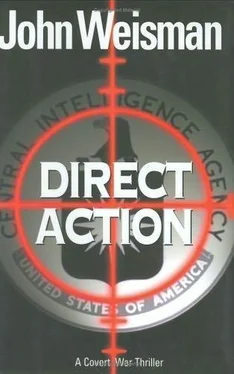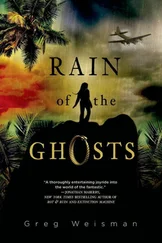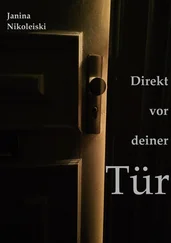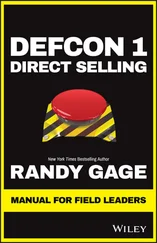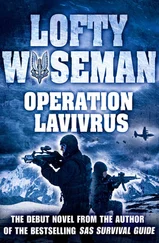Reuven ignored Tom’s question. He accelerated past one of the canal locks then drifted left, onto a narrow bridge that spanned the canal. Tom took a quick glance as Reuven sped north, then west. Jeezus H. Keerist, they were less than half a block from the Pantin Garde Nationale barracks.
Tires squealing, Reuven four-wheel-drifted around a corner. He sped east until he reached the chain-link perimeter fence that marked the big commuter rail storage and maintenance facility. He turned south, then east again, finally threading the needle past a set of steel-and-concrete barriers into a narrow, dark street that looked as if it had been flattened by bombs. Reuven looked at Tom. “Everything demolished,” he said disparagingly, “to make way for a branch of IKEA. Progress, eh?”
There, in the Audi’s headlights, was Hamzi’s Mercedes. The Moroccan’s car was trapped in a pincer by two dark-colored late-model sedans with Paris license plates. Behind the Mercedes were a pair of motorcycles. As Reuven pulled up, Tom could see the motorcycle riders. They wore black leather and visored helmets that covered their faces. The drivers, dressed in dark jeans and leather jackets, had balaclavas. All four were armed: two pointed long, dark semiautomatic pistols at the Mercedes. The other pair held miniature submachine guns with suppressors fixed onto their stubby barrels.
The Mercedes had stalled out. Inside, the Moroccan was looking wildly around, screaming into what was obviously a useless cell phone.
“Goddamnit-what are they waiting for, the Messiah?” The Israeli slammed to a screeching stop, smashed his palm into the dash and extinguished the headlights, jumped out of the car, and ran to the door of the Mercedes.
With a gloved hand he smashed the window, reached inside, switched the car’s lights off, yanked the door open, jerked Hamzi out onto the street, pulled the cell phone out of the Moroccan’s hand, body-slammed him onto the ground, and dropped onto his back. Hamzi’s thick-framed glasses skittered across the macadam.
For an instant, Hamzi froze. Then he must have realized he was struggling for his life, and he tried to roll out of Reuven’s grasp. But Reuven wasn’t going anywhere. Tom could sense the man’s desperation as he bucked and kicked.
Reuven must have caught sight of Tom because suddenly he whirled, looked back toward the Audi, and shouted, “Go-go-go!”
Tom heard. But he couldn’t move. Everything was wrong. The snatch wasn’t going according to plan. Not even close. He and Reuven were scheduled to take control of Hamzi in Bagnolet. Not here. Not so close to Boissons Maghreb.
The Moroccan screamed. Reuven grabbed Hamzi by the hair and yanked his head backward. He twisted the Moroccan’s neck. Hamzi struggled even more wildly. He kicked and screamed and tried to pull himself off the ground. Reuven smashed the side of the Moroccan’s head into the pavement and Hamzi crumpled. He still struggled, but the fight had gone out of him.
Finally, the others piled on. The subgun-toting motorcycle riders slung their weapons and held Hamzi down. Another assaulter clapped a gloved hand over the Moroccan’s mouth. The second balaclava wearer handed Reuven a large black canvas satchel. The Israeli unzipped the bag and rummaged through until he found what he was looking for: a small leather case. He opened the case, extracted a syringe-looking device, pulled the needle protector off, and plunged the syrette right through Hamzi’s overcoat into the man’s hip.
The Moroccan went limp. Reuven stood up. He replaced the syringe in its case and dropped the case into the satchel. He looked at one of the leather-clad figures and pointed at his submachine gun. It, too, was placed in the bag.
Then Reuven produced a roll of tape and bound Hamzi’s legs together at the ankles. The Moroccan’s arms were also quickly pinioned. Then Reuven grabbed Hamzi under his arms and dragged him back to the Mercedes. Reuven let Hamzi’s body slip to the ground. He opened the Mercedes’ rear door and, with the help of one of the black-clad men, pulled the Moroccan onto the rear seat. The black satchel was tossed in next. Finally, Hamzi’s body was covered with a dark blanket that one of the black-clad figures handed to Reuven. Someone handed Hamzi’s glasses to the Israeli, who dropped them into the breast pocket of his coveralls.
Tom still sat transfixed. Dumbstruck. The whole sequence hadn’t taken more than half a minute. They’d rehearsed this. They’d had to.
That was when Reuven looked over to where he was sitting frozen in the passenger seat of the Audi. “Why in God’s name are you sitting like a statue?” he shouted at Tom in Arabic. “Remember what I told you? Get the hell out of here.”
Reuven flicked his cell phone open, punched a number, and spoke rapid Hebrew. Then he whistled once sharply and circled an index finger in the air next to his head. The four others jumped on the bikes, wheelied, and sped off into the night.
Only Reuven and Tom remained. Reuven slid behind the wheel of the Mercedes and slammed the door shut. He looked back. “Damnit, Tom-”
“I’m going.” Tom pulled himself out of the Audi, went around the hood of the car, dropped into the driver’s seat, adjusted it, snapped the door shut, and slammed the car into gear. His head was spinning. These weren’t Algerians. Gangbangers. Drug enforcers. The whole thing was too slick, too professional. Corsicans, maybe. Who knew who they were. Who knew what the hell was going on.
And then Tom realized exactly what the hell was going on.
Because Reuven had told him, “Control is everything, especially when you’re working false flag or through an access agent.” And like some frigging greenhorn he’d nodded dumbly and said, “Gotcha, Reuven.”
This was a false-flag op, all right. A goddamn Mossad false-flag op. Reuven was in control. Hadn’t Shahram been trained by Israelis? They’d no doubt recruited him years ago. And Reuven? His portfolio in Paris had included Iran. Tom’s mind flashed back to Herzlyia. The retired Shin Bet man Amos Aricha had known Ben Said was formulating the new explosive in small batches. Only Shahram had known that factoid.
Reuven had known about Ben Said all along. He’d recruited Tom as the access agent. And if anything went wrong, 4627 were the patsies who’d take the fall. Tom slammed the steering wheel with such force that he bent it. “Reuven, you goddamn son of a bitch.”
He stomped the brakes, threw the car into reverse, and backed up violently, smacking the rear bumper of the Audi into the Mercedes, jamming it into the intercept cars.
He set the parking brake, jumped out, ran to the Mercedes, and pounded on the roof of the car with his fist. “Goddamnit, Reuven-open up.”
Reuven swiveled around, threw the Mercedes into reverse, powered up the big sedan…and accelerated. The smell of burning rubber rose into the night air. But the Audi didn’t budge.
“Goddamnit to hell, Reuven-” Tom’s pounding put a dimple, then a crease, in the roof of the German car. “Let me in or you go nowhere.”
The Israeli lowered the passenger-side window. “Move the Audi, Tom.”
“Then what?”
The Israeli thought about it. “Then you can come with me.”
“All the way?”
Reuven scratched under his hairpiece. “To the end,” he finally said. “We’ll play it out together.” He looked at Tom and his voice softened just a bit. “You’ve earned it.”
Tom pondered the offer. “Keys, Reuven.”
The Israeli blinked. “What?”
“Give me the keys first.”
Reuven examined Tom’s face. Then he grimaced, and with a sigh pulled the keys out of the ignition and handed them to the American. “Happy now?”
Читать дальше
